'12 Years a Slave': life was more terrible for enslaved women
Golden Globe winner has a male protagonist but it rightly focuses on women, says Andrea Livesey
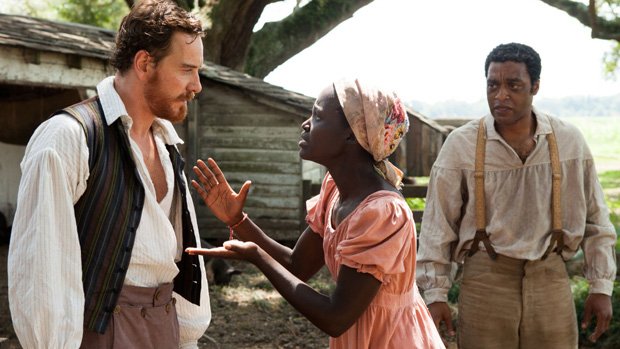
A free daily email with the biggest news stories of the day – and the best features from TheWeek.com
You are now subscribed
Your newsletter sign-up was successful
THE United States was in the middle of a civil war 150 years ago and, while Abraham Lincoln had just issued the emancipation proclamation, it would still be another 18 months until freedom finally came for the four million African Americans held in bondage in the United States.
The status of these people as "non-human" was so ingrained in the American psyche that even the rape of an enslaved woman could only be brought to court if it was considered to be a “trespass” on someone else’s property. On the other hand, a man’s rape of his own enslaved woman could not be a crime - after all, a man is free to do what he likes with his own property. It was this very aspect of enslavement that led former enslaved woman Harriet Jacobs to lament: "Slavery is terrible for men; but it is far more terrible for women".
In recent years, genealogists looking into the ancestry of America’s first lady found Michelle Obama was the great-great-great granddaughter of an illiterate field slave from Georgia named Melvinia who gave birth at age 15 to a child by a white father, most likely to be the slaveowner’s son.
The Week
Escape your echo chamber. Get the facts behind the news, plus analysis from multiple perspectives.

Sign up for The Week's Free Newsletters
From our morning news briefing to a weekly Good News Newsletter, get the best of The Week delivered directly to your inbox.
From our morning news briefing to a weekly Good News Newsletter, get the best of The Week delivered directly to your inbox.
As stories such as Melvinia’s are largely lost to history, it is unclear how many Americans, now living as "white" or "black", have African-American ancestors who endured some form of sexual abuse. What we do know, from the prevalence of references to this in the testimony of former slaves, is that either sexual abuse was a common occurrence, or the cases that occurred were so traumatic and the fear of abuse so great that these former slaves were unable to omit it from their description of enslavement.
One such slave was Solomon Northup, and it is the film adaptation of his 1853 narrative 12 Years a Slave that won best film drama at the Golden Globes yesterday.
The film is different to both Quentin Tarantino’s Django Unchained, and Steven Spielberg’s Lincoln, despite all three films receiving attention for their release during the 150th anniversary commemorations of the Civil War and of course featuring slavery as a key theme. The film may have a male protagonist, but director Steve McQueen focuses on the issues of enslaved women in a way only matched by the film Beloved based on the novel by Toni Morrison.
Like 12 Years a Slave, Beloved is based on a real life story, that of Margaret Garner, a sexually abused enslaved woman who escaped with her four children before tragically attempting to murder them when she learned their master had located them. She succeeded in ending the life of her two-year-old daughter. To Garner, after a lifetime of sexual abuse and knowing the fate of her children, death was preferable to enslavement – and infanticide a higher form of love.
A free daily email with the biggest news stories of the day – and the best features from TheWeek.com
This tragedy is echoed in McQueen’s film through the experience of three enslaved women: Eliza, Patsey, and Harriet – all three sexually abused by white men.
First we meet Eliza, played by Adepero Oduye, who was also kept as the enslaved mistress of her master for nine years. She confesses to Northup in the slave pen: "I have done dishonourable things to survive … God forgive me".
Eliza knew she was ultimately her master’s "property" to do with as he pleased and so rather than resist his rape, she chose to submit to his demands in the hope of a better life for herself and her children. But when her master fell ill, she and her two children were sold to local slave traders by the master’s daughter. Eliza’s young child Emily is destined to be sold as a "fancy girl", an enslaved woman, usually light-skinned, sold purely for sexual labour and popular in the New Orleans slave market. The slave trader remarks there are "heaps and piles of money to be made from her, she’s a beauty". Emily is both the product of white male sexual assault, and its future victim.
Harriet (Alfre Woodard) is kept also kept as a mistress, of Master Shaw, a nearby farm owner. She confides that she plays along with the master’s "pantomime" of affection and fidelity as long as it continues to help her position.
The similar relationship between US president Thomas Jefferson and his enslaved woman Sally Hemings has often been romanticised as one based on love rather than coercion – yet from the testimony of former slaves we know that enslaved women such as Hemings did what they could within the constraints of their gender and status in order to alleviate their position. After all, Thomas Jefferson did not ever free her. While Supreme Court records demonstrate many masters did attempt to free their enslaved mistresses after their death, this still demonstrates a clear need to legally control the women in their lifetime.
Slave girl Patsey (Lupita Nyong'o) plays the most prominent role of all the enslaved women in the film. We are alerted to her youth from her first appearance making corn dolls in the field. Patsey is the victim of both the master and the mistress – the master sexually assaults her and the white mistress, instead of sympathising with her plight, subjects her to psychological and physical abuse.
Through this relationship between Patsey and Mistress Epps (Sarah Paulson) we are given a glimpse into the peculiar domestic space created by slavery. Black and white women lived in close proximity, with jealousy, violence, and sexual abuse part of everyday life.
Slaveholding women were often unable to see enslaved women as victims. In 1861, Mary Boykin Miller Chesnut, a plantation mistress from South Carolina wrote in her diary, “we live surrounded by prostitutes … Like the patriarchs of old our men live all in one house with their wives and their concubines”.
Solomon Northup’s story is not unique. My own research into narratives of, and interviews with, former slaves in the period stretching 70 years after the end of the Civil War highlights the real extent of sexual abuse of women and the premature sexualisation of girls such as Emily was common.
No doubt the sexual abuse of men and young boys by slave holders (male and female) occurred, but evidence is harder to come by. What is obvious is that the psychological pain of men and boys having to stand by and often watch their wives, mothers, sisters and daughters enduring punishment and sexual abuse, whilst being unable to do anything to help, must have been immense.
Andrea Livesey is a PhD candidate at University of Liverpool. This article was originally published at The Conversation.
-
 Samurai: a ‘blockbuster’ display of Japanese heritage
Samurai: a ‘blockbuster’ display of Japanese heritageThe Week Recommends British Museum show offers a ‘scintillating journey’ through ‘a world of gore, power and artistic beauty’
-
 BMW iX3: a ‘revolution’ for the German car brand
BMW iX3: a ‘revolution’ for the German car brandThe Week Recommends The electric SUV promises a ‘great balance between ride comfort and driving fun’
-
 Munich Security Conference: a showdown between Europe and Trump?
Munich Security Conference: a showdown between Europe and Trump?Today’s Big Question Report suggests European leaders believe they can no longer rely on the US for military support – but decoupling is easier said than done
-
 Golden Globes affirm ‘One Battle,’ boost ‘Hamnet’
Golden Globes affirm ‘One Battle,’ boost ‘Hamnet’Speed Read Comedian Nikki Glaser hosted the ceremony
-
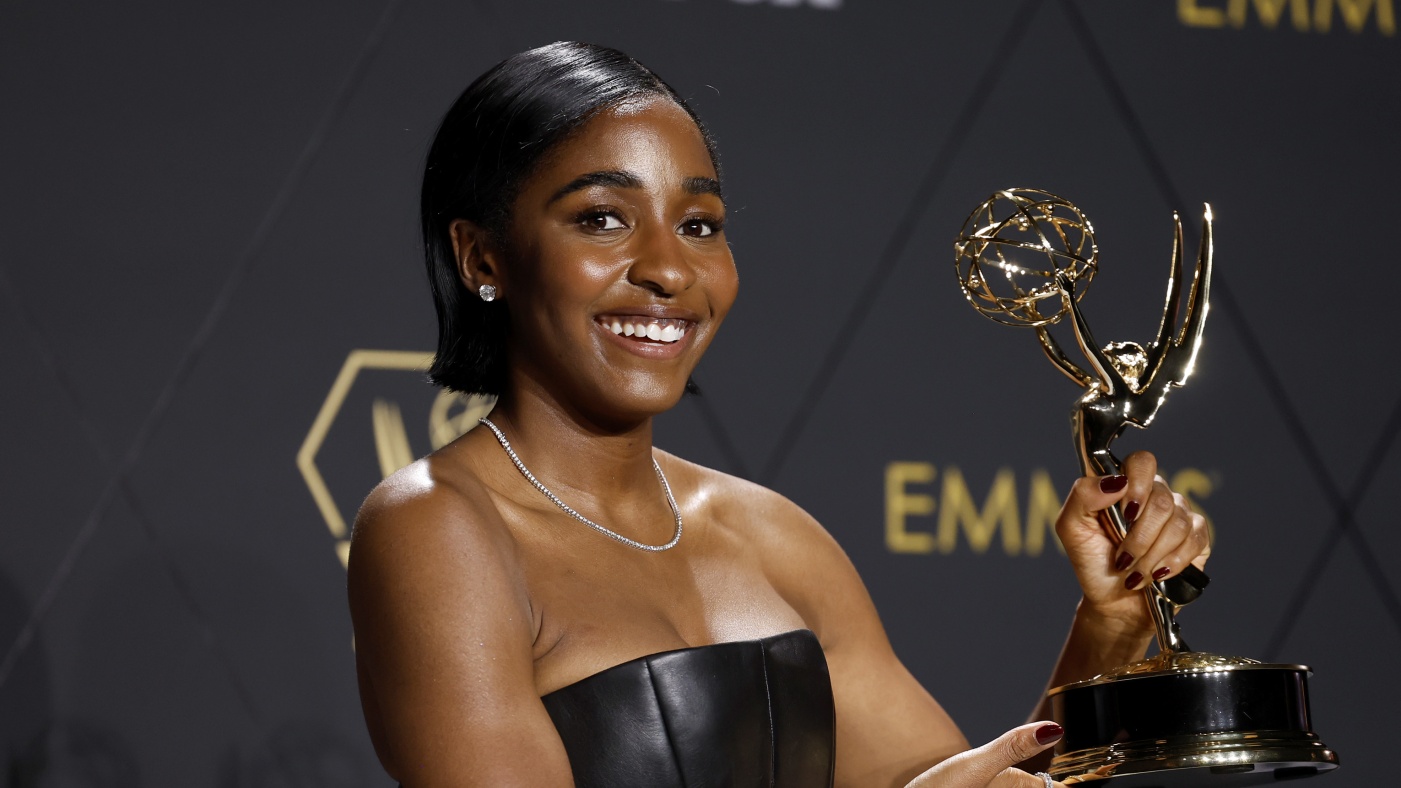 The 'adorable Irishness' of The Bear's Ayo Edebiri
The 'adorable Irishness' of The Bear's Ayo EdebiriIn the Spotlight How the award-winning actor has been claimed by the nation as a daughter of Ireland
-
 2024 Golden Globe nominations predictions: Will Barbenheimer dominate?
2024 Golden Globe nominations predictions: Will Barbenheimer dominate?In Depth Plus: Which films will be nominated in a new category honoring blockbusters?
-
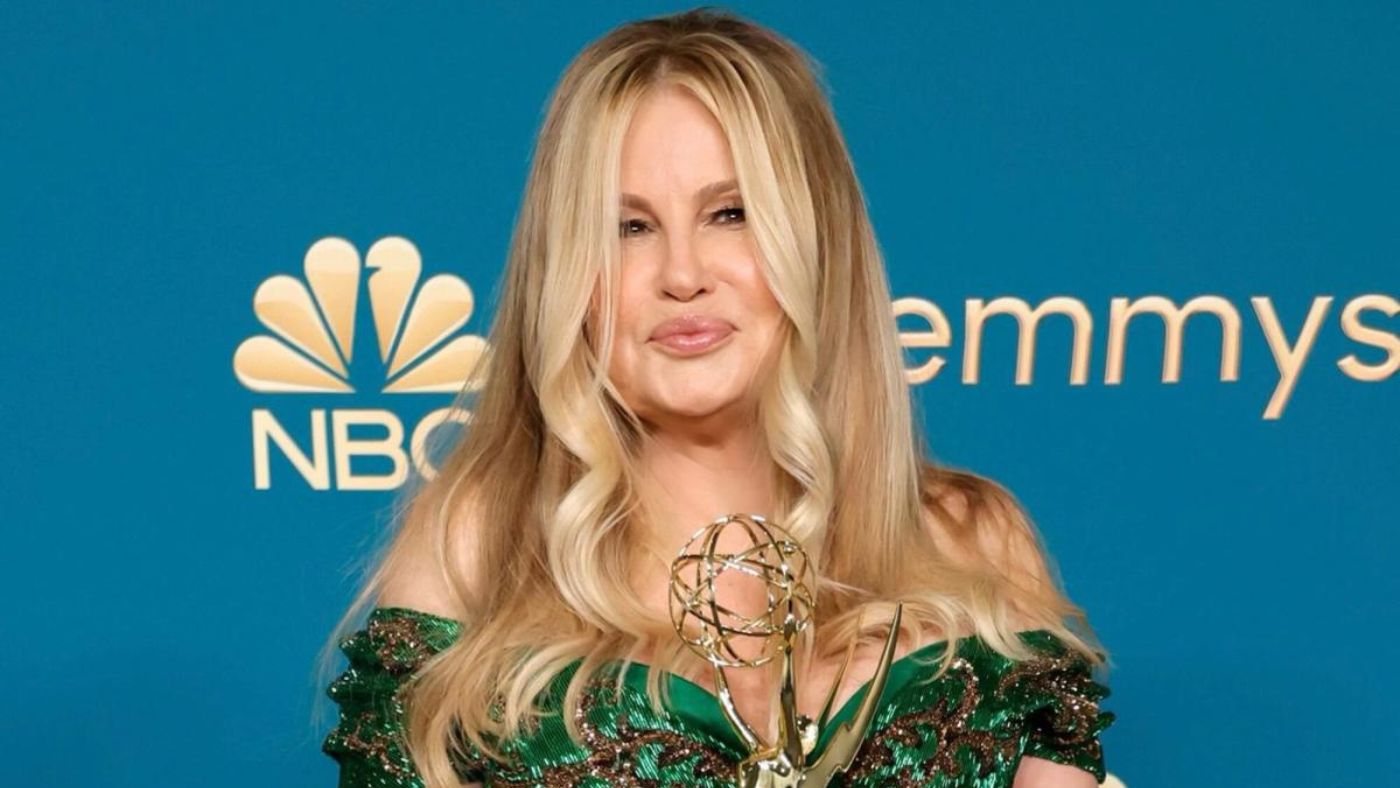 Jennifer Coolidge: the Hollywood star breaking the mould – and the internet
Jennifer Coolidge: the Hollywood star breaking the mould – and the internetIn the Spotlight The underdog actress previously known for bit-part roles now has an Emmy and a Golden Globe
-
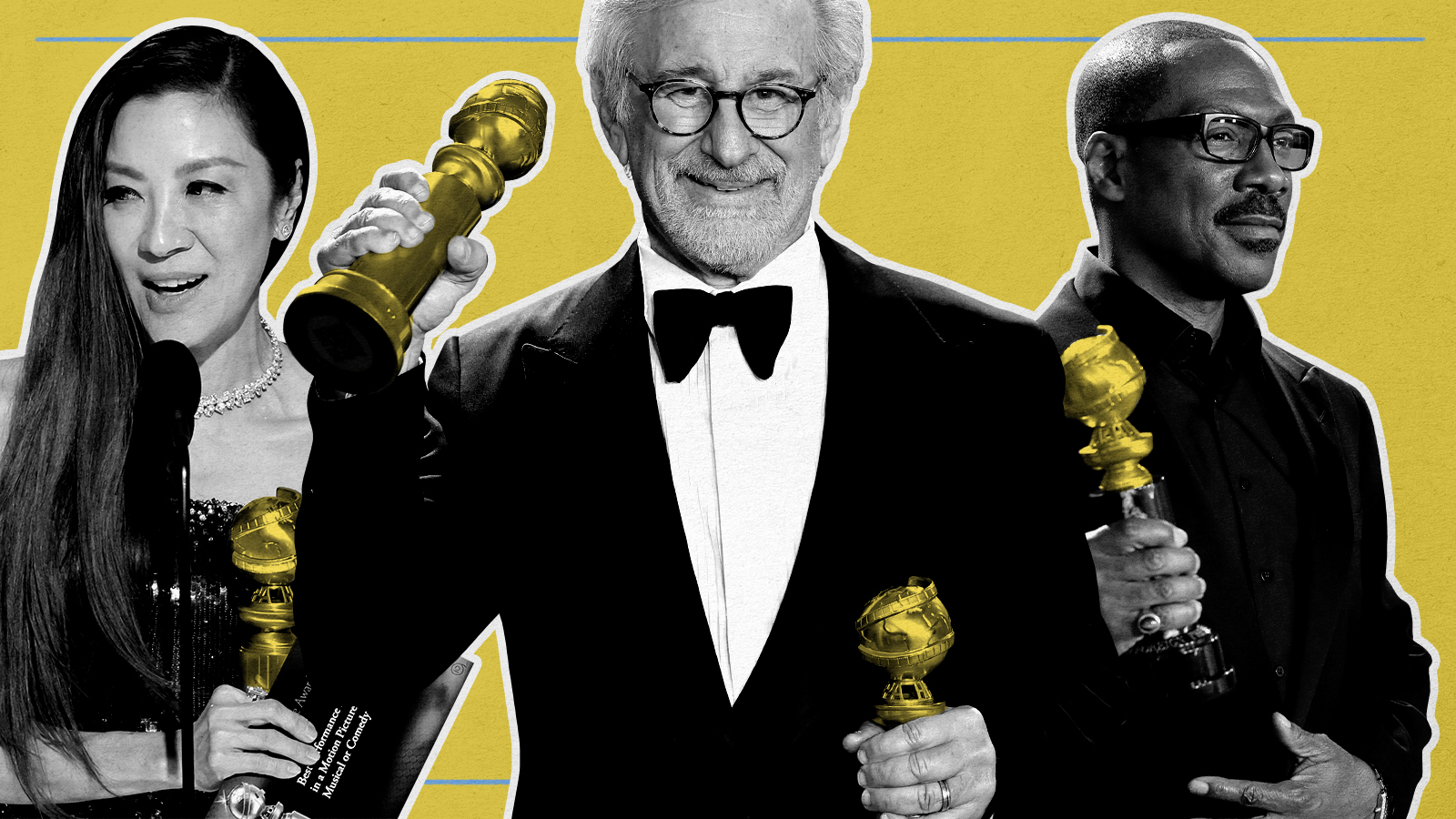 Winners and losers of the 2023 Golden Globes
Winners and losers of the 2023 Golden Globesfeature Who won, who missed out, and what does it all mean for the Oscars?
-
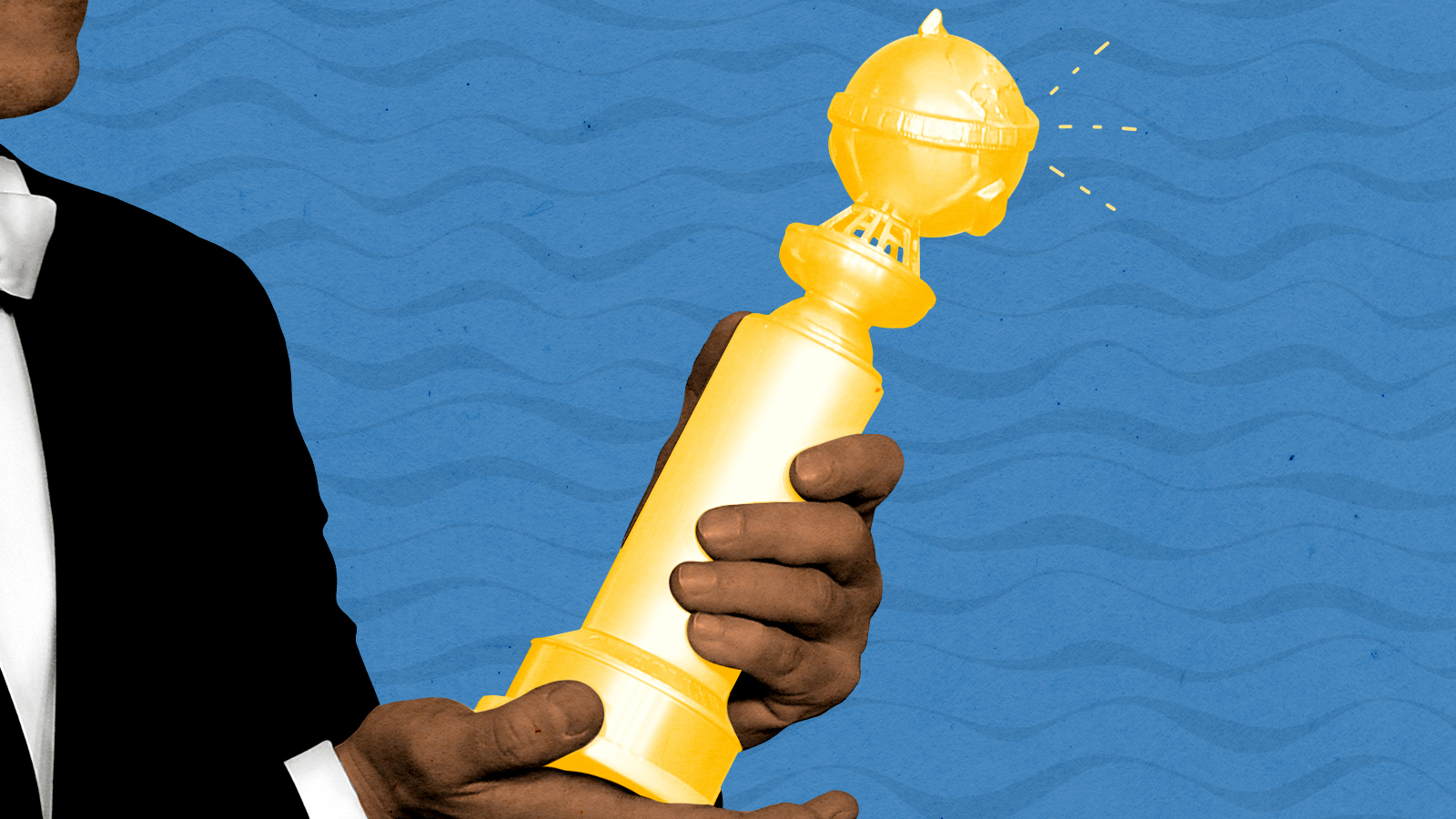 2023 Golden Globes: Everything you might have missed
2023 Golden Globes: Everything you might have missedfeature Follow The Week's coverage live during the ceremony
-
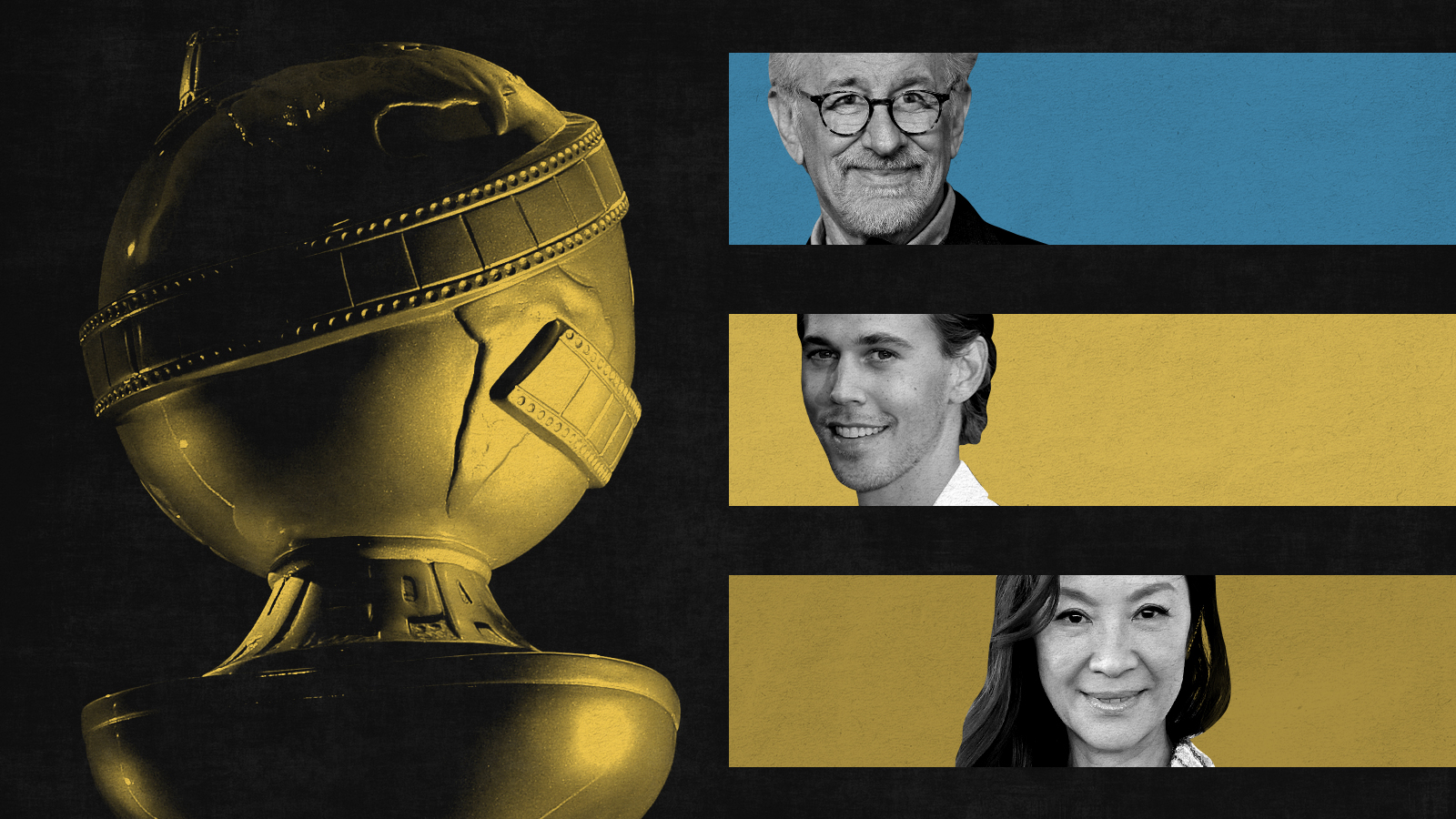 2023 Golden Globes: Who will win, and who could surprise?
2023 Golden Globes: Who will win, and who could surprise?Speed Read Will 'Elvis' or 'The Fablemans' have a bigger night?
-
 Golden Globes fail to nominate any female directors — again
Golden Globes fail to nominate any female directors — againSpeed Read